
Sittwe: The Coastal Gem of Myanmar
Sittwe, the capital of Rakhine State in Myanmar, is a city that offers a unique blend of cultural richness and natural beauty. Situated where the Kaladan River meets the Bay of Bengal, Sittwe boasts stunning seaside views and a vibrant local atmosphere. The city's port is a bustling hub, reflecting its historical importance in trade and commerce. Visitors to Sittwe can explore the local markets, which are full of fresh seafood, local produce, and traditional crafts. The city's diverse culture is evident in its many temples, mosques, and churches, offering a glimpse into the harmonious coexistence of different communities. The Shwezedi Monastery and the Sittwe Viewpoint are must-visit spots for their spiritual significance and panoramic views. For nature enthusiasts, Sittwe is a gateway to the nearby Mrauk U, an ancient city known for its temples and archaeological sites. The area is also home to beautiful beaches like the pristine Kyein Taw Beach, perfect for a tranquil escape. Bird watchers will be delighted by the variety of species in the region, particularly around the wetlands and mangrove forests. Sittwe's rich history, friendly locals, and picturesque scenery make it a compelling destination for travelers seeking an off-the-beaten-path experience in Myanmar.
Local tips in Sittwe
- Visit the local fish market early in the morning to experience the bustling activity and grab some fresh seafood.
- Dress modestly when visiting religious sites to respect local customs and traditions.
- Hire a local guide for a more insightful tour of the ancient city of Mrauk U, which is accessible by boat or car from Sittwe.
- Carry cash as ATMs are limited and many places do not accept credit cards.
- Try traditional Rakhine cuisine, especially the spicy fish curry, at local restaurants for an authentic culinary experience.
Sittwe: The Coastal Gem of Myanmar
Sittwe, the capital of Rakhine State in Myanmar, is a city that offers a unique blend of cultural richness and natural beauty. Situated where the Kaladan River meets the Bay of Bengal, Sittwe boasts stunning seaside views and a vibrant local atmosphere. The city's port is a bustling hub, reflecting its historical importance in trade and commerce. Visitors to Sittwe can explore the local markets, which are full of fresh seafood, local produce, and traditional crafts. The city's diverse culture is evident in its many temples, mosques, and churches, offering a glimpse into the harmonious coexistence of different communities. The Shwezedi Monastery and the Sittwe Viewpoint are must-visit spots for their spiritual significance and panoramic views. For nature enthusiasts, Sittwe is a gateway to the nearby Mrauk U, an ancient city known for its temples and archaeological sites. The area is also home to beautiful beaches like the pristine Kyein Taw Beach, perfect for a tranquil escape. Bird watchers will be delighted by the variety of species in the region, particularly around the wetlands and mangrove forests. Sittwe's rich history, friendly locals, and picturesque scenery make it a compelling destination for travelers seeking an off-the-beaten-path experience in Myanmar.
When is the best time to go to Sittwe?
Iconic landmarks you can’t miss
Mahamuni Pagoda
Discover the essence of Mandalay at Mahamuni Pagoda, a sacred Buddhist temple rich in history and cultural significance.
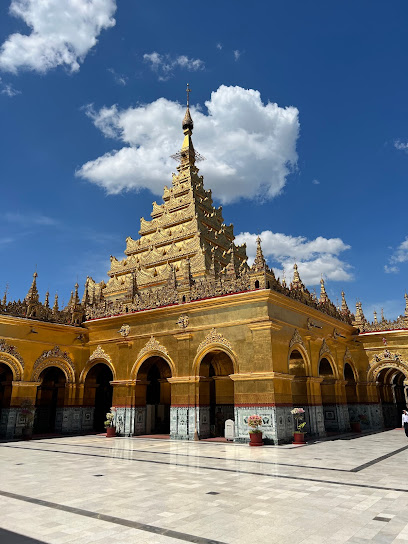
Hsinbyume Pagoda (Myatheindan Pagoda)
Discover the enchanting Hsinbyume Pagoda, a stunning white symbol of love and devotion in the heart of Myanmar's cultural heritage.
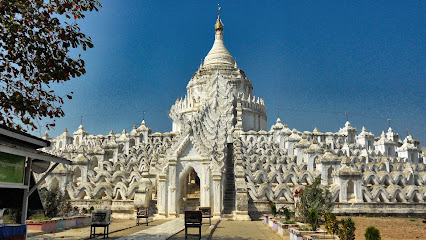
National Races Village
Explore the vibrant tapestry of Myanmar's cultures at the National Races Village in Yangon, an immersive ethnographic experience showcasing traditional lifestyles and crafts.
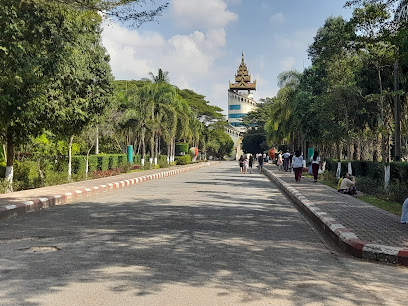
Shwenandaw Buddhist Temple
Explore the Shwenandaw Buddhist Temple in Mandalay, a stunning monastery known for its intricate wood carvings and peaceful atmosphere.
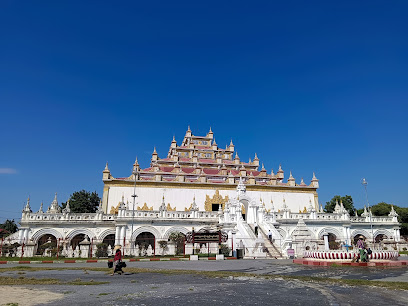
Tachileik Shwedagon Pagoda
Discover the enchanting Tachileik Shwedagon Pagoda, a spiritual landmark showcasing stunning architecture and deep cultural significance in Myanmar.
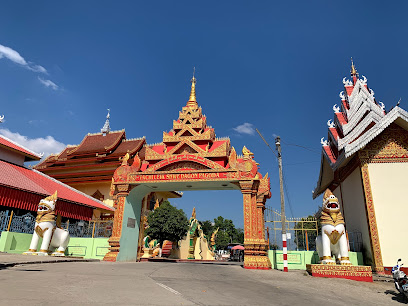
Mingun Bell
Discover the Mingun Bell, the world's largest ringing bell, a majestic symbol of Myanmar's rich cultural heritage and history.
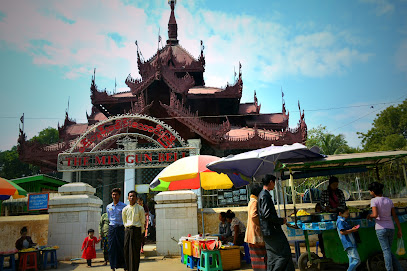
Sittwe View Point Park
Experience the stunning views and cultural richness at Sittwe View Point Park, the perfect destination for relaxation and exploration in Myanmar.
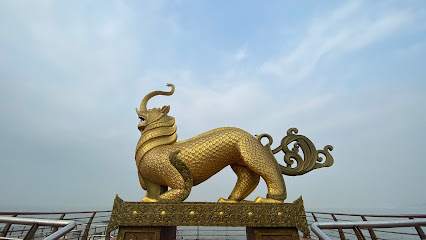
Phowintaung Cave Complex (ဖိုလ်ဝင်တောင်)
Uncover the ancient rock carvings and tranquil beauty of Phowintaung Cave Complex, a hidden gem in Myanmar perfect for culture and adventure enthusiasts.
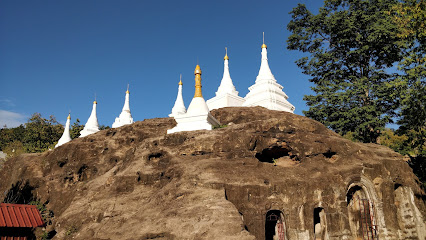
Lawkanandar Pagoda
Experience tranquility and stunning architecture at Lawkanandar Pagoda, a must-visit Buddhist temple in Sittwe, Myanmar.
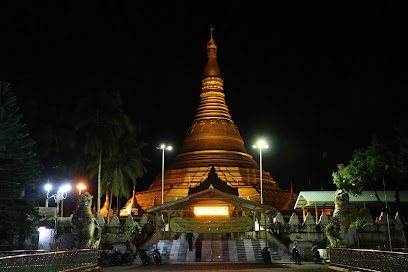
Bulethi Pagoda
Discover the tranquil beauty and spiritual significance of Bulethi Pagoda, a must-visit landmark in Nyaung-U, Myanmar.
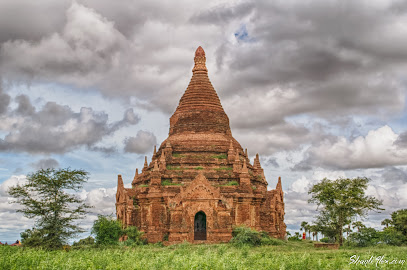
Arian
Discover the culinary delights of Arian, a top restaurant in Sittwe serving an exquisite blend of local and international cuisines.
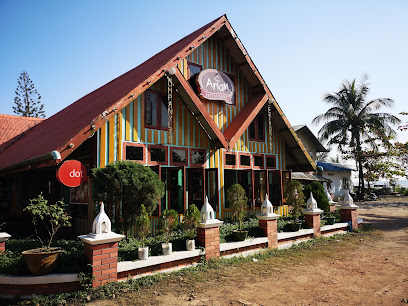
ဟိုတယ် မန်မိုရီ - Hotel Memory
Experience comfort and hospitality at Hotel Memory in Sittwe, your perfect home base for exploring the rich culture and stunning landscapes of this coastal gem.

Bagaya Monastery
Discover the serene beauty and rich history of Bagaya Monastery, a captivating wooden structure in Amarapura, Myanmar, steeped in Buddhist tradition.
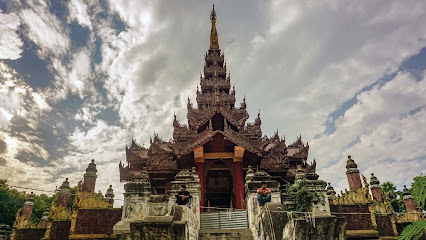
Shaitthaung Phayar
Explore the breathtaking Shaitthaung Phayar, a historic Buddhist temple in Mrauk-U, showcasing exquisite architecture and deep spiritual heritage.
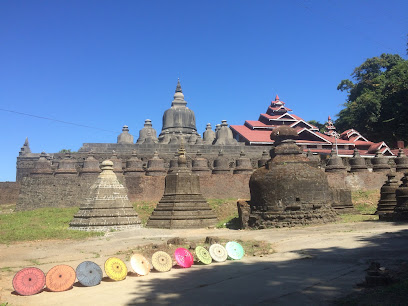
Central Market Sittwe
Explore the vibrant Central Market of Sittwe, a cultural hub offering fresh produce, local delicacies, and unique handcrafted treasures.
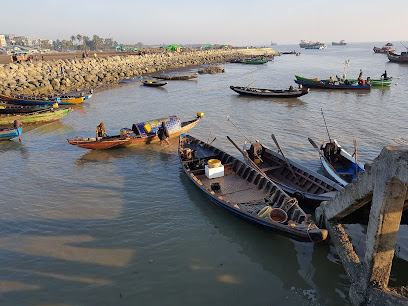
Unmissable attractions to see
Lawkananda Pagoda
Experience the tranquility and beauty of Lawkananda Pagoda in New Bagan, a spiritual haven showcasing Myanmar's rich Buddhist heritage.
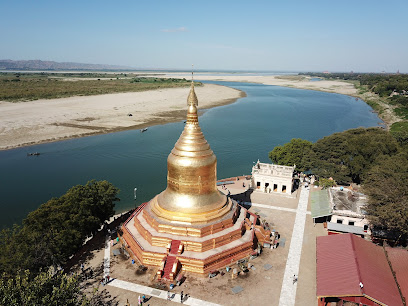
Shaitthaung Phayar
Discover the enchanting Shaitthaung Phayar in Mrauk-U, a historical Buddhist temple showcasing exquisite architecture and rich cultural heritage.
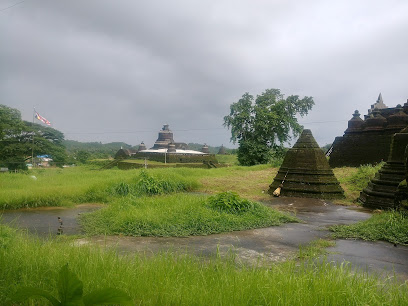
Mahamuni Buddhist Temple
Experience spiritual tranquility at Mahamuni Buddhist Temple, home to the revered golden Buddha and a vibrant hub of Myanmar's rich cultural heritage.
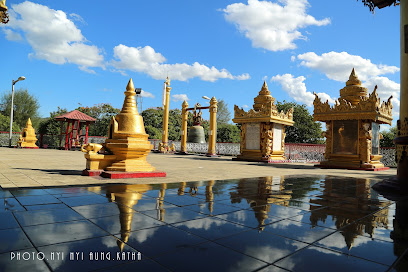
Rakhine State Cultural Museum
Explore the rich heritage of Rakhine State at the Cultural Museum in Sittwe, showcasing unique artifacts and traditions of the local culture.
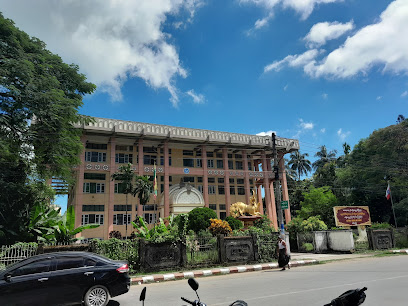
Koe Thaung Pagoda
Discover the awe-inspiring Koe Thaung Pagoda in Mrauk-U, a historic treasure brimming with intricate architecture and a wealth of Buddha images.
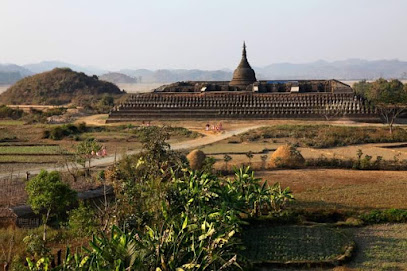
Buddhist Museum
Discover the spiritual heart of Myanmar at the Buddhist Museum in Sittwe, a haven of peace and cultural richness.
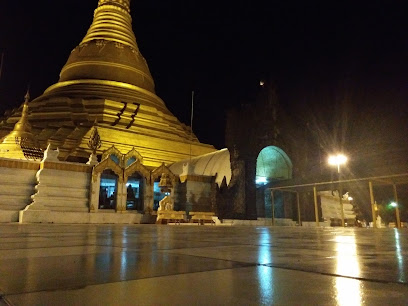
View Point Beach
Discover the serene beauty of View Point Beach in Myanmar, a perfect retreat for relaxation and stunning sunset views.
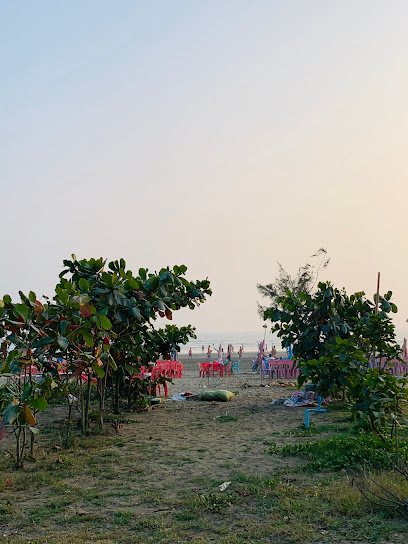
Htukkant Thein Temple
Explore Htukkant Thein Temple in Mrauk-U, a stunning Buddhist temple rich in history and serenity, perfect for cultural immersion and peaceful reflection.
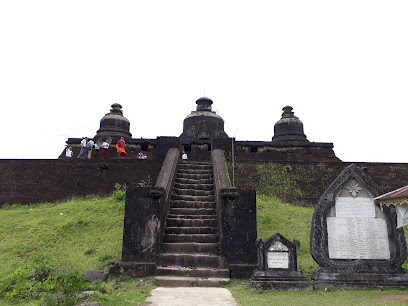
Zina Manaung Pagoda
Discover the spiritual essence of Mrauk-U at Zina Manaung Pagoda, an architectural gem steeped in history and tranquility.
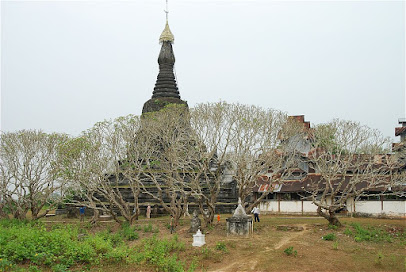
Ratanabon Pagoda
Discover the tranquil beauty of Ratanabon Pagoda in Mrauk-U, a serene Buddhist temple rich in history and spiritual significance.
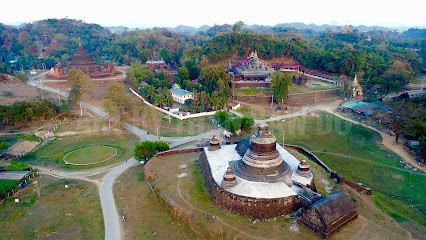
Andaw Thein Temple
Explore the serene Andaw Thein Temple in Mrauk-U, a captivating pagoda blending architectural beauty and rich cultural heritage amidst breathtaking landscapes.
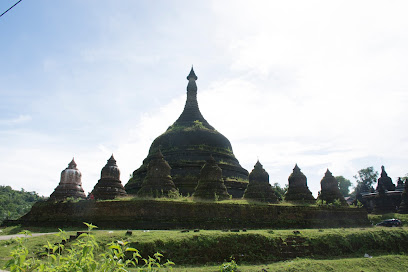
Latsay Kan Pagoda
Discover the serene beauty and rich history of Latsay Kan Pagoda, a tranquil gem in Mrauk-U, Myanmar, offering stunning views and cultural insights.
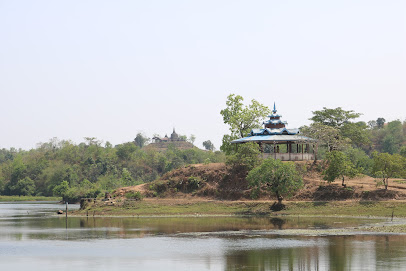
Ah Baung Taw Moat/Lake
Discover the serene beauty and historical significance of Ah Baung Taw Moat and Lake in Mrauk-U, Myanmar – a tranquil escape into nature.
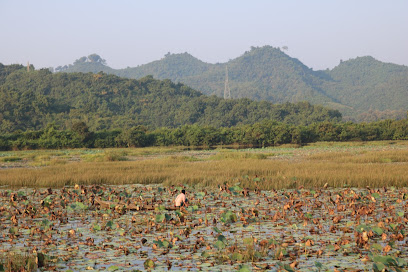
Palace Excavation Site
Explore the Palace Excavation Site in Mrauk-U, an archaeological gem revealing the grandeur of ancient Myanmar's royal history.

Essential places to dine
Arian
Discover authentic Myanmar cuisine at Arian in Sittwe – where every dish tells a story!
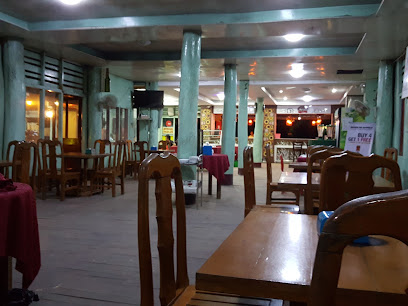
River Valley Seafoods Restaurant
Discover the authentic flavors of Myanmar at River Valley Seafoods Restaurant in Sittwe – where fresh seafood meets warm hospitality.
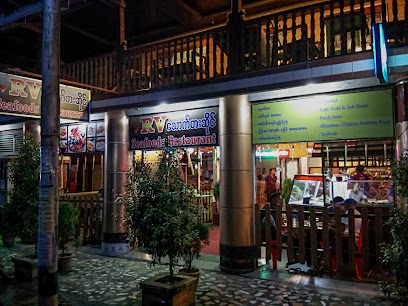
River Valley Restaurant
Discover the flavors of Myanmar at River Valley Restaurant in Sittwe – where local ingredients meet culinary creativity.
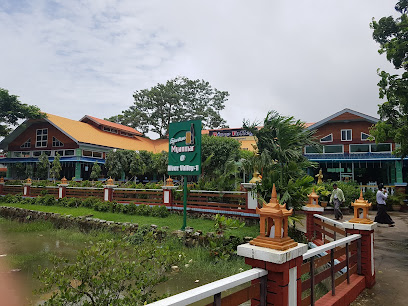
SS Food Centre
Experience authentic hot pot dining at SS Food Centre in Sittwe—where fresh ingredients meet flavorful broths in a lively atmosphere.
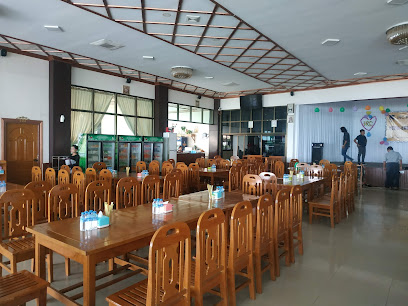
Country House
Discover tranquility at Country House Beer Garden in Sittwe – where local brews meet delightful dining amidst lush surroundings.
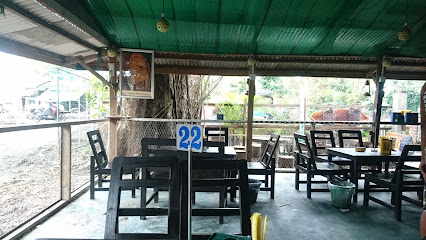
Maw Laik Mont Ti
Experience authentic South East Asian cuisine at Maw Laik Mont Ti in Sittwe – where every meal tells a story.
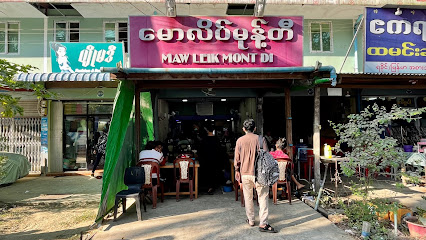
Kaung San Pya restaurant
Experience the authentic taste of Myanmar at Kaung San Pya Restaurant in Sittwe—delicious local dishes await every traveler.
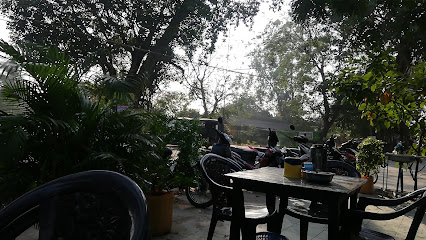
Shwe Roe Rar (Restaurent & Bar)
Discover fresh seafood delights at Shwe Roe Rar in Sittwe - where traditional flavors meet vibrant dining.
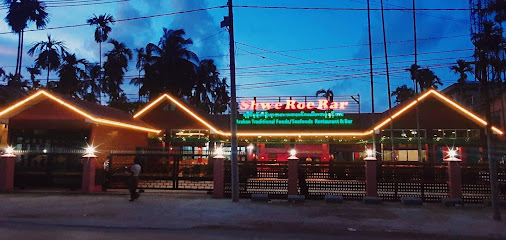
Mya Sabai Traditional Restaurant
Experience the rich flavors of authentic Burmese cuisine at Mya Sabai Traditional Restaurant in Sittwe.
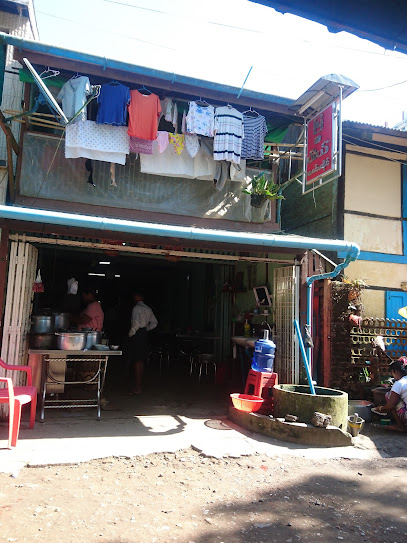
ဗလီကြီးထမင်းဆိုင်
Discover authentic Burmese flavors at ဗလီကြီးထမင်းဆိုင် in Sittwe - a lunch spot where tradition meets taste.
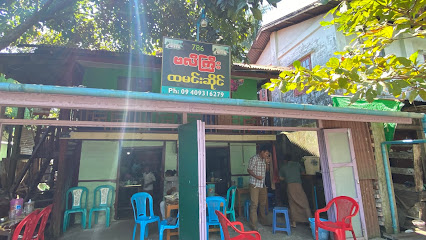
Cine Dyarr Rakhine Traditional food and Noddle
Experience authentic Rakhine flavors at Cine Dyarr - a culinary delight in Sittwe featuring traditional noodles and local specialties.
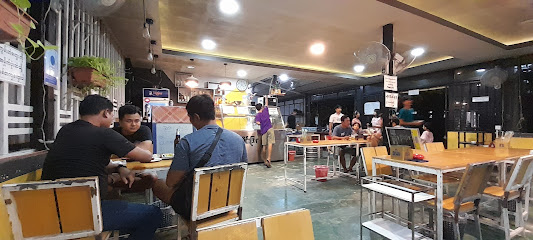
New World
Experience authentic local cuisine at New World, Sittwe's top dining destination blending tradition and taste in every dish.
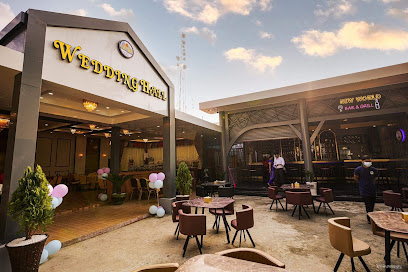
Than Myint Restaurant
Discover authentic Rakhine cuisine at Than Myint Restaurant in Sittwe - a delightful experience for food lovers exploring Myanmar.
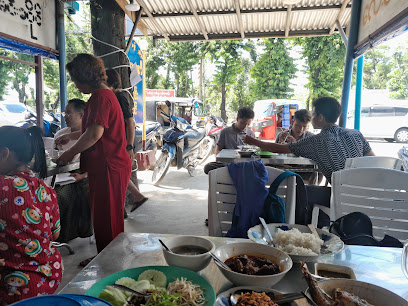
Shwe Pyi Taw Restaurant
Experience authentic Myanmar cuisine at Shwe Pyi Taw Restaurant in Sittwe - where local flavors come alive!
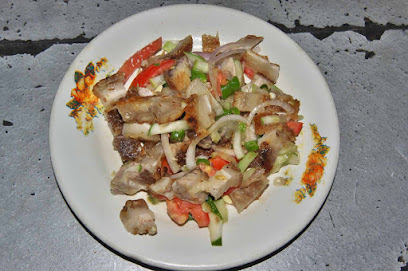
မောလိပ်ထမင်းဆိုင်
Savor the authentic tastes of Myanmar at မောလိပ်ထမင်းဆိုင် in Sittwe – where every dish tells a story.
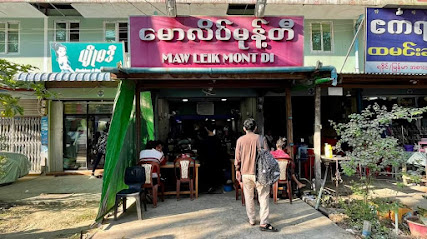
Markets, malls and hidden boutiques
Phyo Store
Phyo Store in Sittwe: Your go-to convenience store for local snacks, essentials, and a glimpse of Myanmar's vibrant shopping culture.
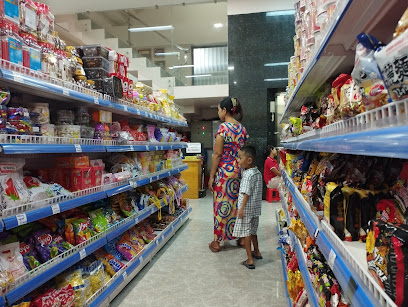
မြတ်စေတနာ
Explore the serene atmosphere of မြတ်စေတနာ, a Buddhist supplies store in Sittwe, where spirituality meets tradition in every artifact.
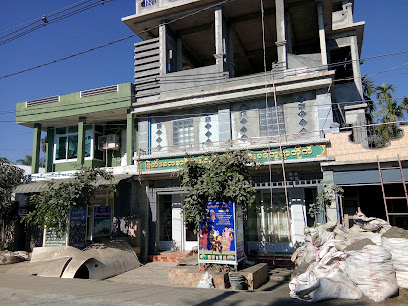
စိန် (ကုန်စုံဆိုင်)
Explore the vibrant flavors of Sittwe at စိန် (ကုန်စုံဆိုင်), your go-to Asian grocery store for authentic local ingredients and cultural immersion.
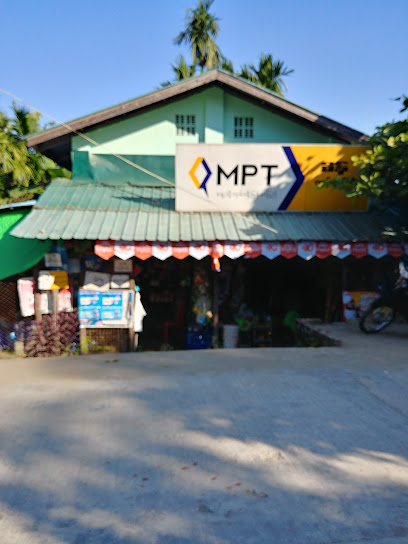
အမဲသားဆိုင်
Experience the authentic tastes of Myanmar at အမဲသားဆိုင် in Sittwe, where local flavors come alive in a welcoming atmosphere.
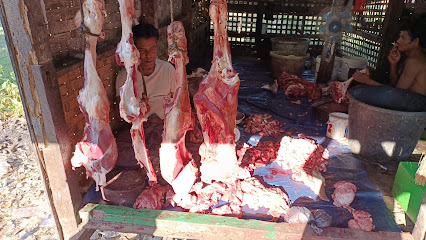
Family Store
Discover unique local treasures at the Family Store in Sittwe, a vibrant hub for souvenirs and traditional crafts that reflect Myanmar's rich culture.

H3 Vape Shop - Sittwe
Explore the modern vaping culture at H3 Vape Shop in Sittwe, offering a wide range of products in a welcoming atmosphere.
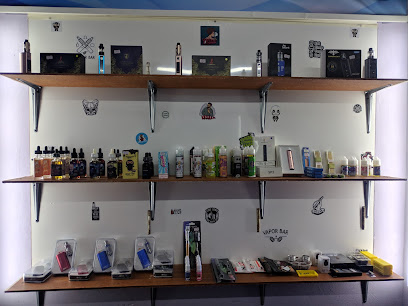
WAN Babies & Women Collection(Sittwe)
Explore WAN Babies & Women Collection in Sittwe for unique, stylish women's and children's clothing that reflects local culture and fashion trends.
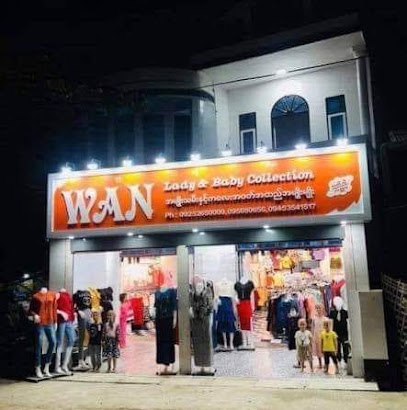
K & T
Explore K & T in Sittwe for unique home goods and authentic Burmese crafts, perfect for souvenirs and gifts that capture the essence of local culture.
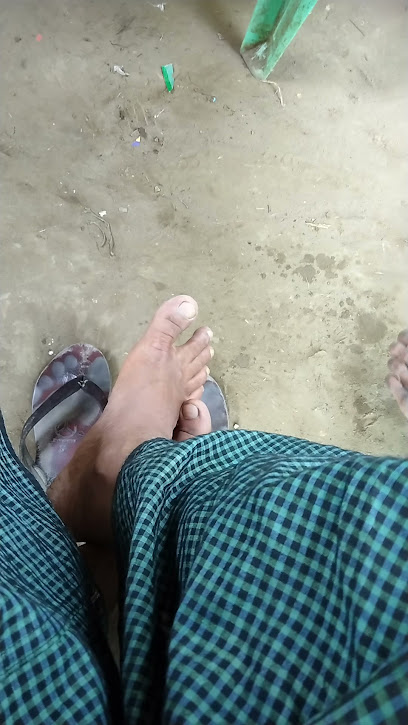
ကောင်းထက် ကုန်မျိုးစုံဆိုင်
Experience the vibrant local culture at ကောင်းထက် ကုန်မျိုးစုံဆိုင် in Sittwe, where authentic goods and community life come together.
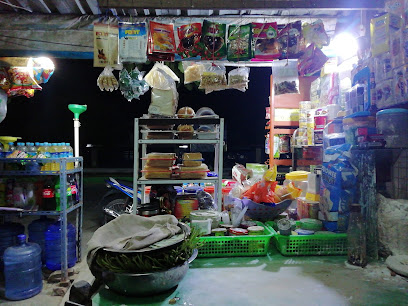
Kyaw&Thaw
Discover shopping bliss at Kyaw&Thaw in Sittwe, where local culture meets modern retail in a vibrant marketplace.

စစ်တွေကာဂိတ်
Experience the essence of Sittwe through its local grocery store, where fresh produce and traditional flavors come together in vibrant harmony.

Sittwe Highway Bus Station
Discover local culture and unique souvenirs at Sittwe Highway Bus Station, your gateway to Myanmar's breathtaking landscapes.

Baw Du Pha
Explore Baw Du Pha in Sittwe for unique local crafts and a taste of Myanmar's vibrant culture, perfect for souvenir shopping.
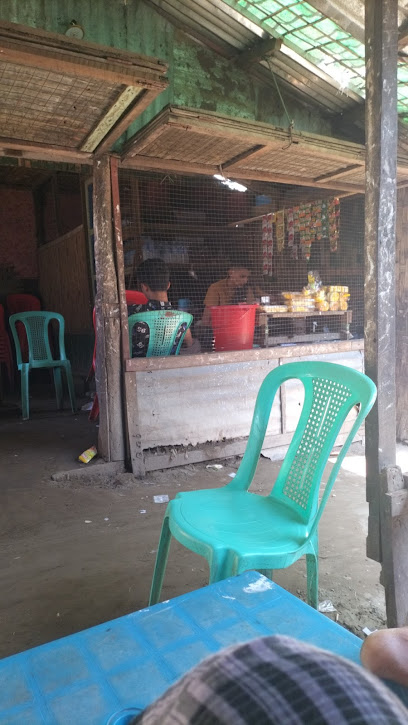
စန်းဖွင့်သူ Man Fashion Shop
Explore Sittwe's vibrant fashion scene at Man Fashion Shop, where unique styles meet local culture in a warm and welcoming atmosphere.

Ko kyawlurntunn&MA TiTiOo _ MiNi Store
Explore local culture and unique souvenirs at Ko Kyawlurntunn & MA TiTiOo Mini Store in Sittwe, Myanmar.

Essential bars & hidden hideouts
Wave Sittwe Family Karaoke & Restaurant
Discover the vibrant Wave Sittwe Family Karaoke & Restaurant, where delicious food meets unforgettable karaoke fun for an authentic Sittwe experience.

Country House
Experience the tranquil charm of Sittwe at the Country House Beer Garden, where refreshing drinks and warm hospitality await.

White House KTV, Bar & Resataurant
Discover the vibrant nightlife of Sittwe at White House KTV, Bar & Restaurant, where great drinks and karaoke await.

Shwe Roe Rar (Restaurent & Bar)
Experience the freshest seafood and vibrant atmosphere at Shwe Roe Rar in Sittwe, Myanmar, a culinary gem for every traveler.

New World
Discover a culinary oasis at New World, where traditional Burmese flavors meet global cuisine in the heart of Sittwe.

မောလိပ်ထမင်းဆိုင်
Experience the rich and diverse flavors of Sittwe at မောလိပ်ထမင်းဆိုင်, where every dish tells a story of Burmese culinary heritage.

Bay of Sittwe - B.O.S
Discover the serene beauty and cultural richness of the Bay of Sittwe, a hidden gem on Myanmar's picturesque coastline.

The Bay Bar and Restaurant
Experience the charm of Sittwe at The Bay Bar and Restaurant, where local flavors and refreshing drinks create an unforgettable dining experience.

MUSIC LAND
Discover the ultimate karaoke experience at Music Land, a lively bar in Sittwe that blends entertainment and socializing for an unforgettable night out.

BEACH BOX
Experience the best of Sittwe's grilled cuisine at Beach Box, where coastal ambiance meets delicious flavors in a perfect setting.

Like Restaurant
Experience the charm of Sittwe at Like Restaurant, where local flavors and a cozy atmosphere create the perfect bar experience.

Wai Tharli Bar & Restaurant
Explore the vibrant nightlife at Wai Tharli Bar & Restaurant in Sittwe, where local flavors and welcoming ambiance await you.

ထာဝရ စားသောက်ဆိုင်
Experience the vibrant culture and flavors of Sittwe at the renowned bar, ထာဝရ စားသောက်ဆိုင်, a must-visit for every traveler.

ArakhaBeerGarden
Discover the vibrant nightlife at ArakhaBeerGarden, where great drinks and local culture come together in Sittwe.

tt
Experience the vibrant local culture at a charming bar in Sittwe, where every drink tells a story.

Local Phrases
-
- Helloမဂၤလာပါ
[má-ga-la-pa] - Goodbyeလေးချင်ပါစေ
[le-kyin-pa-se] - Yesဟုတ်ကဲ့
[hut-gae] - Noမဟုတ်ပါ
[ma-hut-pa] - Please/You're welcomeကျေးဇူးတင်ပါစေ
[kye-zu-tang-pa-se] - Thank youကျေးဇူးတင်ပါစေ
[kye-zu-tang-pa-se] - Excuse me/Sorryခံယောက်ဖြူစေ
[khan-yauk-hpru-se] - How are you?နားသည်နော်လေးလေးပါပါ
[na-sin-nau-le-le-pa-pa] - Fine. And you?လေးလေးပါပါ နားသည်နော်
[le-le-pa-pa na-sin-nau] - Do you speak English?အင်္ဂလိပ်လိုပါပဲ
[in-ga-le-lu-pa-ge] - I don't understandကျေးဇူးတင်မယ်
[kye-zu-tang-ma-ye]
- Helloမဂၤလာပါ
-
- I'd like to see the menu, pleaseမီနူးကြည့်ပါစေ
[mi-nu-krin-pa-se] - I don't eat meatမကြာခင်မယ်
[ma-kra-hkan-ma-ye] - Cheers!အရယ်
[a-ye] - I would like to pay, pleaseငွေပေးပါစေ
[ngwe-pay-pa-se]
- I'd like to see the menu, pleaseမီနူးကြည့်ပါစေ
-
- Help!အကူအကူ
[a-ku-a-ku] - Go away!သွားရပါ
[swa-ya-pa] - Call the Police!အရောင်းရိုးပြီး
[a-yaung-yu-pri] - Call a doctor!အဆိုင်ရင်ပြီး
[a-haung-yan-pri] - I'm lostသွားလို့ခဲ့လို့
[swa-lo-khae-lo] - I'm illနားမယ်
[na-ma-ye]
- Help!အကူအကူ
-
- I'd like to buy...အမှားကြည့်ပါစေ
[a-mha-krin-pa-se] - I'm just lookingသွားရကြည့်ပါ
[swa-yi-krin-pa] - How much is it?ဘယ်လိုင်းလဲ
[bha-lein-lae] - That's too expensiveအိပ်မယ်အတောင်း
[ei-ma-ye-a-taung] - Can you lower the price?စျော်ကြည့်ပါပါလား
[sya-krin-pa-pa-la]
- I'd like to buy...အမှားကြည့်ပါစေ
-
- What time is it?ဘယ်နာရီတဲ
[bha-na-ri-tai] - It's one o'clockတစ်နာရီဆယ်
[ta-na-ri-hai] - Half past (10)ဆယ်နာရီခုန်
[hai-na-ri-ku] - Morningမနက်
[ma-naik] - Afternoonမနက်ညိုင်
[ma-naik-yin] - Eveningနောင်ကြ
[nau-ngar] - Yesterdayမနေ့လင့်
[ma-ne-laing] - Todayယနေ့
[ya-ne-la] - Tomorrowမနက်နေ့
[ma-naik-na] - 1တစ်
[ta] - 2နှစ်
[hnac] - 3သုံး
[son] - 4လေး
[lei] - 5ငါး
[nga] - 6ခြောက်
[hroak] - 7ခွောက်
[hwek] - 8ရှိ
[shae] - 9ကိုး
[ku] - 10ဆယ်
[hai]
- What time is it?ဘယ်နာရီတဲ
-
- Where's a/the...?ဘယ်နာမည်းရှိပါ
[bha-na-ma-nyae-shae-pa] - What's the address?နောက်စားလို့ရှိပါ
[nau-sa-lo-hae-shae-pa] - Can you show me (on the map)?မြောက်မည်းရှိပါပါလား
[myauk-ma-nyae-shae-pa-la] - When's the next (bus)?နောက်နောင်းရှိပါ
[nau-naung-shae-pa] - A ticket (to ....)လက်ခံ့လို့ရှိပါ
[la-hkan-lo-hae-shae-pa]
- Where's a/the...?ဘယ်နာမည်းရှိပါ
History of Sittwe
-
Sittwe, historically known as Akyab, was established in the early 19th century. Its strategic location at the confluence of the Kaladan, Mayu, and Lemyo rivers has made it a significant port and trade center for centuries. The town's history is deeply connected to the ancient Arakanese Kingdom, which was known for its maritime prowess and trade networks extending to the Indian subcontinent and beyond.
-
Sittwe came under British control in 1826 following the First Anglo-Burmese War. The British recognized the town's strategic importance and developed it into a major port. During this period, Sittwe saw a surge in economic activity, with the export of rice, timber, and other goods. The town also became a melting pot of cultures, with Indian, British, Burmese, and Arakanese communities coexisting.
-
During World War II, Sittwe was a significant battleground. The town was occupied by Japanese forces in 1942, leading to considerable hardship for its residents. The British later recaptured Sittwe in 1945 during the Burma Campaign. This period left a lasting impact on the town, with remnants of wartime bunkers and military installations still visible in some areas.
-
After Burma gained independence from British rule in 1948, Sittwe continued to thrive as a commercial hub. However, the town also faced challenges, including political unrest and ethnic tensions. Despite these difficulties, Sittwe has remained a vital center for trade, particularly with Bangladesh, due to its proximity to the border.
-
Sittwe is home to a rich tapestry of cultures and religions. The town is known for its numerous Buddhist pagodas and monasteries, reflecting the deep-rooted influence of Buddhism in the region. One notable site is the Shwe Zedi Kyaung Monastery, which attracts pilgrims and tourists alike. Additionally, Sittwe's diverse population includes Muslims, Hindus, and Christians, each contributing to the town's vibrant cultural mosaic.
-
In recent years, Sittwe has seen significant development, especially with the construction of the Sittwe Deep Water Port as part of the Kaladan Multi-Modal Transit Transport Project, which aims to enhance trade links between India and Myanmar. Despite facing challenges such as natural disasters and ongoing ethnic conflicts, Sittwe continues to be an important economic and cultural center in the Rakhine State.
Sittwe Essentials
-
Sittwe is located in the Rakhine State of Myanmar. The most common way to reach Sittwe is by flying into Sittwe Airport (AKY) from Yangon, which offers regular domestic flights. Alternatively, travelers can take a bus from Yangon to Sittwe, though the journey is long and can take upwards of 20 hours due to the road conditions. Another option is to travel by boat from Pyay or other coastal towns, which can be an adventurous way to see the region.
-
Sittwe is a small city, and many attractions can be reached on foot. For longer distances, local tuk-tuks and taxis are available and can be hailed on the street. It is advisable to negotiate the fare before starting the journey. Bicycle rentals are another popular option for getting around the city. Public buses are limited, but there are private minibuses that connect Sittwe with nearby towns.
-
The official currency in Myanmar is the Burmese Kyat (MMK). While larger hotels and restaurants may accept credit cards, it is advisable to carry cash, especially in smaller establishments. ATMs are available in Sittwe, but they may not always be reliable, so ensure you have enough cash on hand for your needs. Currency exchange services are available at the airport and in major hotels.
-
Sittwe is generally safe for tourists, but standard precautions should be taken. Avoid walking alone at night in unfamiliar areas and be cautious with your belongings in crowded places. Petty theft can occur, so keep valuables secured. Certain areas of Rakhine State have been affected by conflict, so it's advisable to stay updated on current conditions and avoid travel to these regions.
-
In case of an emergency, dial the local emergency number 199 for police assistance. The main hospital in Sittwe is Sittwe General Hospital, which provides medical services. It is recommended to have travel insurance that covers medical emergencies. For minor health issues, there are several pharmacies in the city where you can purchase over-the-counter medications.
-
Fashion: Do dress modestly, especially when visiting religious sites. Avoid wearing revealing clothing. Religion: Do show respect for local customs and traditions. Always remove your shoes and socks before entering pagodas and monasteries. Public Transport: Do be respectful and give up your seat to elderly passengers. Don't eat or drink on public transport. Greetings: Do greet people with a slight bow or a traditional Burmese greeting 'Mingalabar.' Handshakes are also acceptable. Eating & Drinking: Do try local cuisine and accept food offerings graciously. Don't refuse hospitality, as it is considered impolite.
-
To experience Sittwe like a local, visit the local markets such as the Sittwe Central Market, where you can buy fresh produce and local goods. Engage with locals, as they are often friendly and willing to share stories about the city's history and culture. Don't miss visiting the historic Shwezedi Monastery and the Rakhine State Cultural Museum. For a unique experience, take a boat trip to the ancient city of Mrauk U, which is known for its archaeological sites and ancient temples.
Trending Landmark in Sittwe
-
Mahamuni Pagoda
-
Hsinbyume Pagoda (Myatheindan Pagoda)
-
National Races Village
-
Shwenandaw Buddhist Temple
-
Tachileik Shwedagon Pagoda
-
Mingun Bell
-
Sittwe View Point Park
-
Phowintaung Cave Complex (ဖိုလ်ဝင်တောင်)
-
Lawkanandar Pagoda
-
Bulethi Pagoda
-
Arian
-
ဟိုတယ် မန်မိုရီ - Hotel Memory
-
Bagaya Monastery
-
Shaitthaung Phayar
-
Central Market Sittwe
Nearby Cities to Sittwe
-
Things To Do in Mrauk U
-
Things To Do in Cox's Bazar
-
Things To Do in Bagan
-
Things To Do in Ngapali
-
Things To Do in Chittagong
-
Things To Do in Pyay
-
Things To Do in Naypyidaw
-
Things To Do in Barisal
-
Things To Do in Kalaw
-
Things To Do in Mandalay
-
Things To Do in Aizawl
-
Things To Do in Comilla
-
Things To Do in Inle Lake
-
Things To Do in Pyin Oo Lwin
-
Things To Do in Agartala






